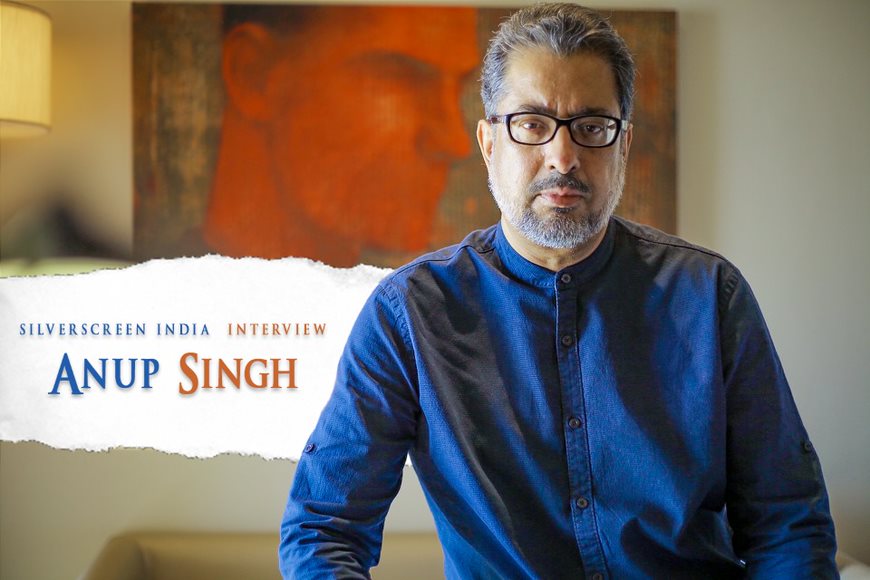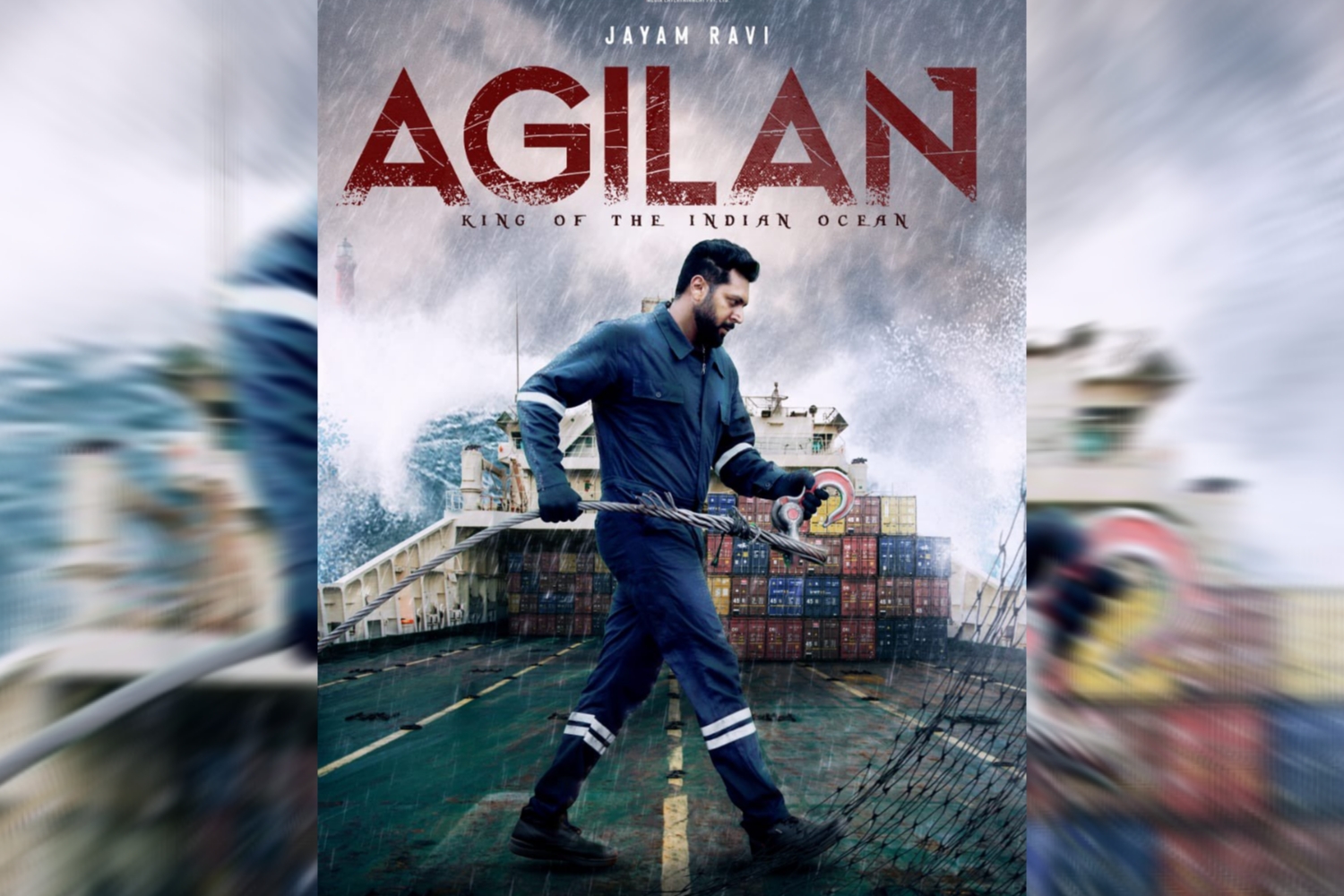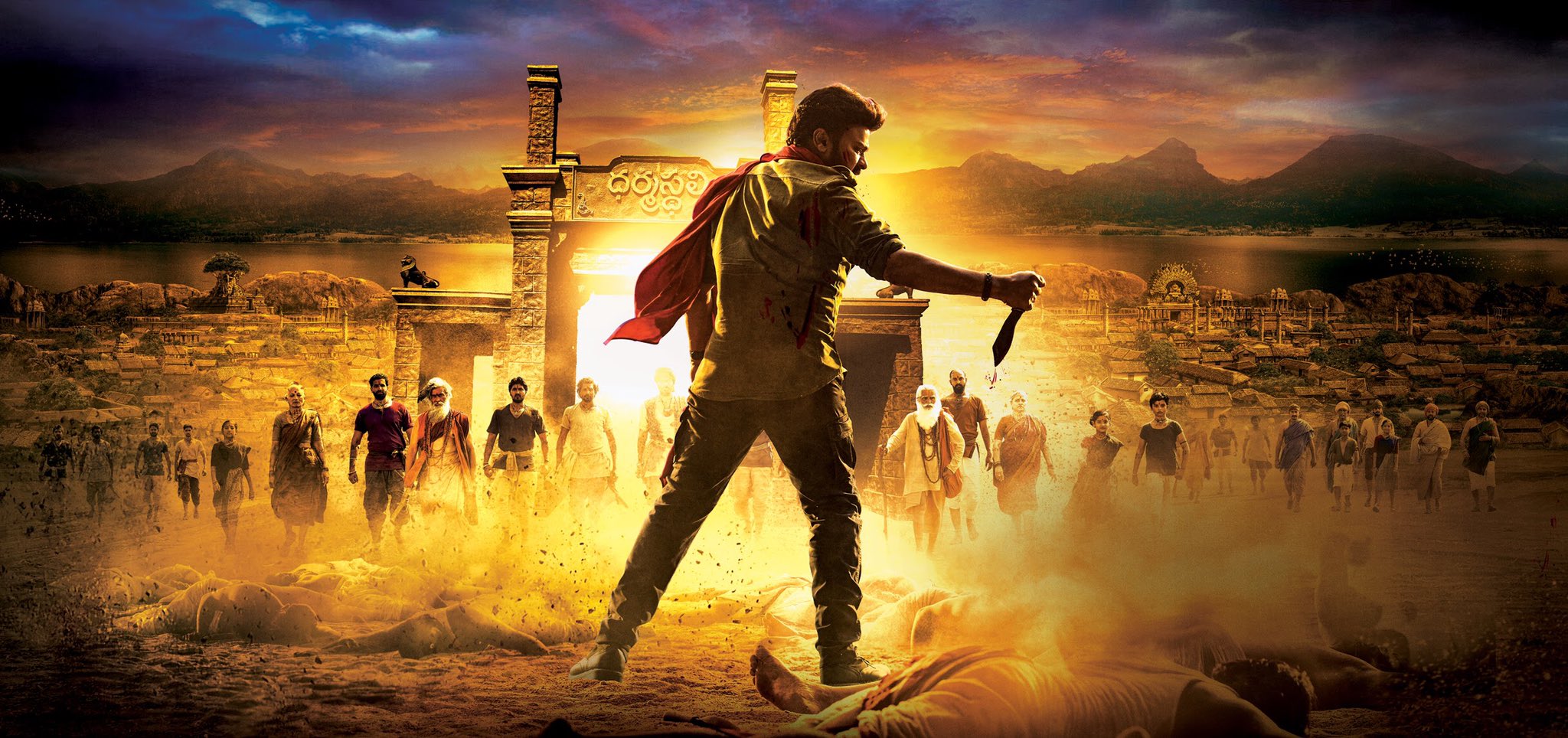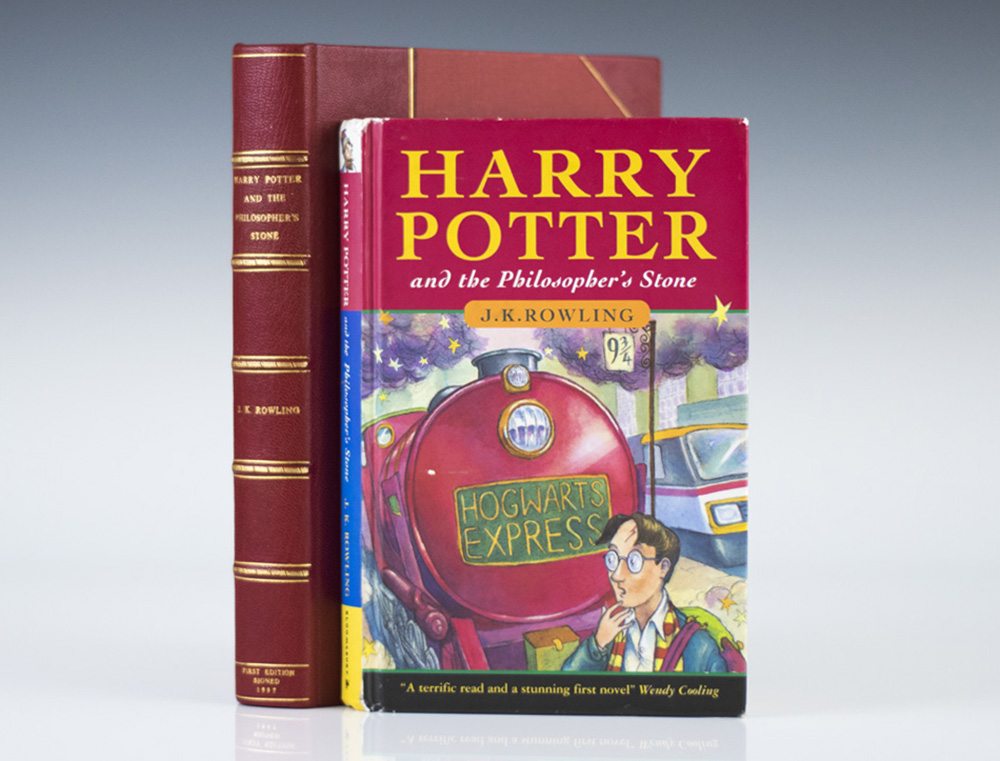Anup Singh’s book on Irrfan Khan, Irrfan: Dialogues with the Wind, is neither a mere collection of facts, nor a map that traces the trajectory of the late actor’s life. It is a treasure trove of memories and, as he calls it, future memories.
Khan lost his battle with cancer two years ago. The National Award-winning actor succumbed to a colon infection on April 29, 2020.
Singh reminisces about his old friend in this conversation with Silverscreen India and talks about his new book. “Everyone has a different Irrfan for them. In this book, I have given you a finished picture of Irrfan. I am very happy that I have given you a large and comprehensive vision of Irrfan as I saw him,” he says.
Irrfan: Dialogues with the Wind was announced on the occasion of Khan’s 54th birth anniversary. According to the official description, it offers an intimate glimpse into the working relationship between Singh and Khan “as they trudge through mutual wariness, uncertainties, and blunders to a friendship founded firmly in creativity. As we travel with them to Punjab and Rajasthan and watch them at work on their films, we see in minute detail the devotion to hard work and the openness to uncertainty that make Irrfan’s performances so hypnotising.”
Published by Copper Coin, the book hit the stands on February 14. You can read an excerpt of the book here.

How random notes of loss and grief turned into a book
Even though Singh and Khan collaborated on just two films, namely Qissa: The Tale of a Lonely Ghost (2014) and The Song of Scorpions (2017), a bond was woven between them through mutual interests such as Sufism, poetry, different kinds of performances, stories, and music.
The book documents such rare and personal accounts of Khan, which go beyond his identity as an international actor. It shows him as someone who flew kites wherever he went, which, as Singh puts it, “was his dialogue with the universe.”
“He saw every little pull or release of the string that holds the kite in the air, as almost an understanding of life and death. It is this affirmation of life in all its mystery that is his true gift to us; it is reflected in his performances. At its core, this is the Irrfan that my book aspires to celebrate,” the filmmaker says.
Singh started penning down thoughts about his friend a month or two after the latter’s demise. What started out as a personal journey, soon turned into therapy and culminated in the book.
“I wouldn’t say it was a diary at all, in any sense of the word. Or a journal. These were just random notes – something that you do because you are so full with emotions that you don’t know what else to do. I just wrote it down because I had to remember my friend,” says Singh.
Even though others acquainted with Khan told Singh that these notes were worth sharing with the world, Singh did not, at first, paid any heed to them. It was only after his friend and acclaimed Punjabi poet Abhijeet Chandan gave him the nod, that he decided to start working on it as a manuscript.
Despite the sense of grief that Singh felt, which could not help but be reflected in his writing, he says that he did not want the book to be consumed by it.
“There’s a great grief in the writing. But I felt that that was not a complete picture. I did not want only the last part of Irrfan’s life to inform all of his life. So, I was a little more careful, even in the language that I used. Sometimes, I had to get away from the grief to celebrate the joyous moments that we had together.”
Precious validation for Singh came from Khan’s wife, Sutapa Sikdar. She said that the book made her laugh, cry, and see Irrfan alive again.
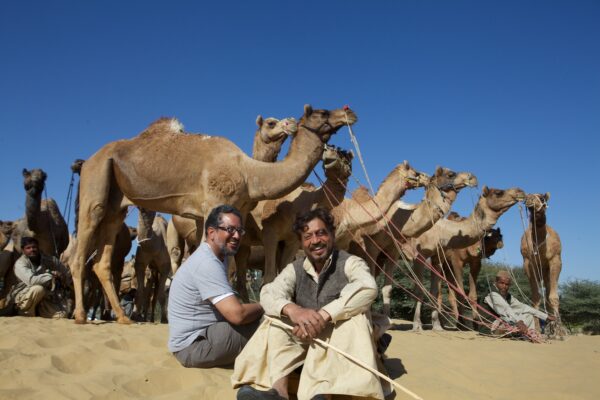
Dialogues with the wind, universe, and himself
According to Singh, the book will open the imagination of all who read it, and they will see their own ideas of life, of Irrfan, of acting, of directing, of making films, of simply living day to day with curiosity.
Khan did not take life at face value, says Singh. “His performances were never premeditated. He was sensitive to the rhythms of nature and read into everything from a bird’s call to the wind touching his face, and the rising of a co-actor’s dupatta in the air.”
“And his dialogues, thus, took on a living quality of a relationship that is happening right there. To give us a sense not only of the story of the film but a sense of what it means to live at this very moment, in our lives.”
It is because of this that a difference can be noticed in almost all of Khan’s films, in terms of how he walks, how he speaks, the filmmaker adds. In addition to Indian films, the late actor also appeared in several international movies like Life of Pi (2012), Jurassic World (2015), Inferno (2016), and the Oscar-winning Slumdog Millionnaire (2008).
“He also grew as a human being from film to film,” says Singh. “And therefore, something inside him was also turning and changing. This rhythm that he takes from nature, is a rhythm that actually relates to all of us.”
“Everything eventually came down to humanity for Khan,” he adds.
Singh explains that one reason for his fondness for Khan was because the actor would be ready to go into the darkest aspects of what it means to be a human being without trying to justify it. “Or, sometimes, even without trying to balance it.”
Khan’s love for acting, Singh says, emerged from this space that allowed him to look into the numerous aspects of himself.
For instance, in Singh’s Qissa, Khan plays a father who is so obsessed with having a son that when his fourth daughter is born, he declares her a boy and brings her up as one. The film follows the tragic consequences of this decision.
Upcoming works – a second book and an unfinished film
Singh and Khan had a third film that was in the works before the actor’s sudden death. The untitled film, which would have been their last collaboration, is extensively discussed in Irrfan: Dialogues with the Wind.
The film’s story revolves around a folk dancer within the rasleela tradition in Vrindavan. Khan was set to play the dancer, who is torn between his devotion for Radha and Krishna and the expectations of the modern world, where even his family does not want to see him dressed as a woman.
Recommended
When Singh had first approached Khan with the idea, the actor had told Singh, “You are the only one who comes to me with these kinds of ideas. First of all, I hate dancing. And secondly, you want me to play a woman. You know, these are the kind of roles that I should never do, but I know that I have to do them.”
Singh says he did not specifically write the role for Khan. But he felt the actor would be a good fit. “Irrfan has a great sense of rhythm in relationship with everything happening in nature. And I wanted to see if we could extend this rhythm of his into a full film. That would have been the basis of the film.”
The film’s development has reached a roadblock with the actor gone, he adds.
But, the filmmaker has completed the script. In Khan’s absence, the three to five months he spent writing the script was like working with the actor again, Singh says.
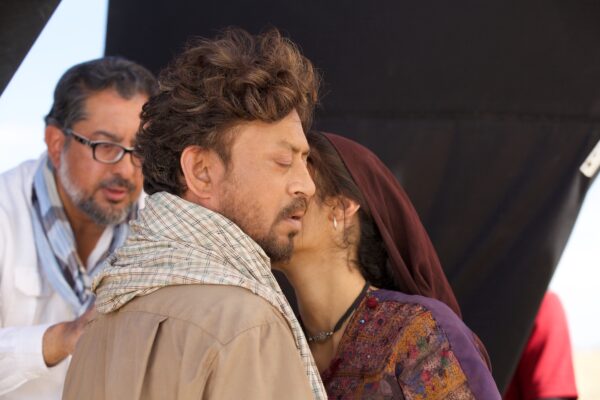
In addition to the film, Singh has also started work on his second book, a novel. Currently, he says he is just putting down thoughts and calls the shift from a memoir to a novel, “a part of growing up.”
He views neither the book nor his next venture as a closure of his memories of his friend.
“In fact, it’s the opposite. You begin to see different aspects of the memories – different moments in the memory. This is unending, and I think this happens with all of us. Quite honestly, it’s a joy.”
